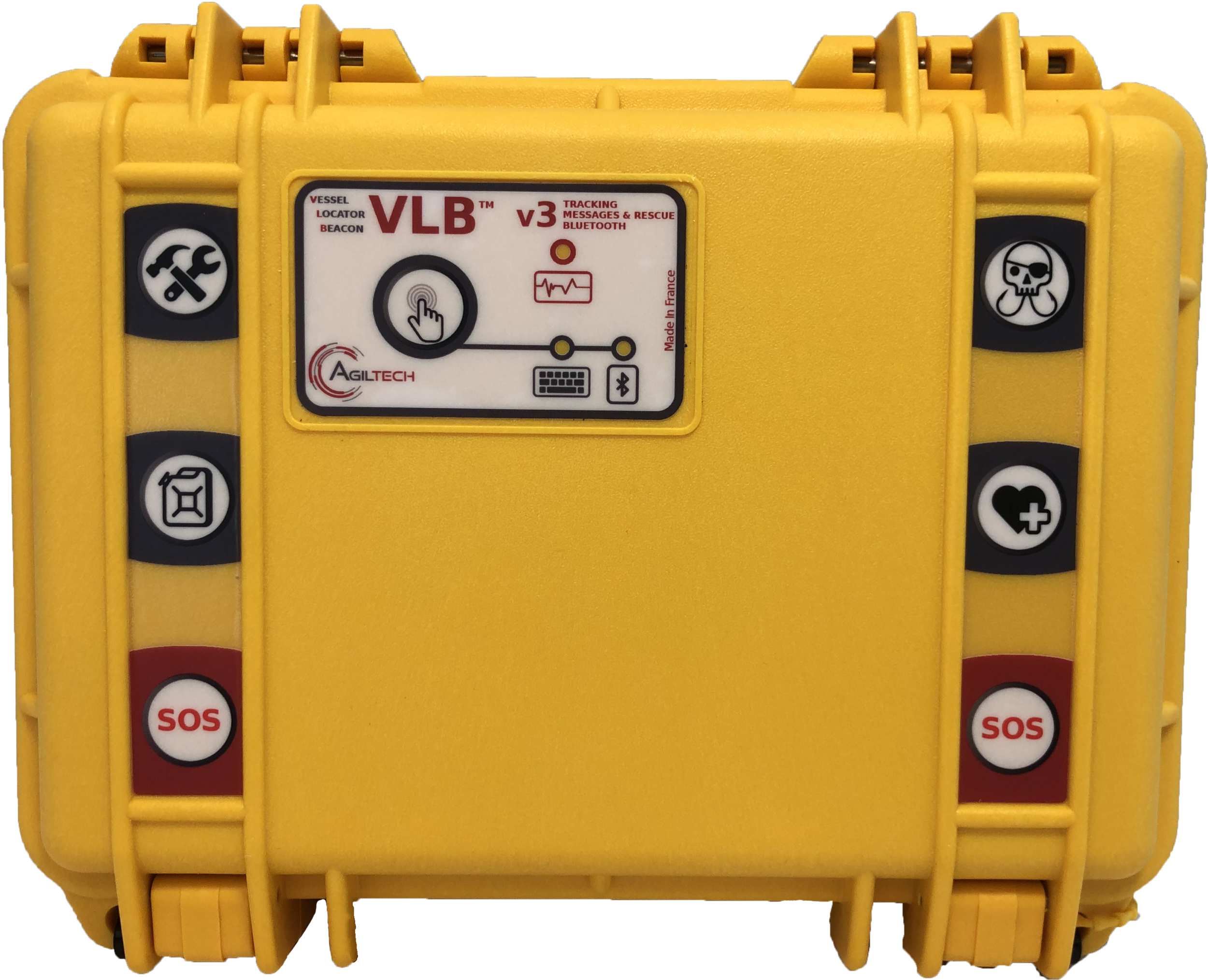The local sector welcomes some innovative initiatives and the ratification of ILO C188, but continues to call for the strengthening of working conditions throughout the sector, especially for women who are not covered by the Convention
Senegal is one of six African countries to have ratified ILO Convention 188 on Conditions of Work in the Fishing Sector. Compared to other ILO instruments on fisheries, this is the first time that a convention covers both inland and maritime artisanal fishing. Senegal also adopted an action plan for the implementation of the FAO Voluntary Guidelines for Small-Scale Fisheries last February.
For small-scale fisheries stakeholders, now is the time to propose concrete measures to improve the working conditions of men and women in the artisanal sector, whether on board pirogues, at the landing sites or during processing and marketing operations.
A MULTI-PURPOSE VMS TRANSMITTER
The transmitter is designed to withstand difficult marine conditions and transmits the precise geolocation of the boat every ten minutes. Photo: Agiltech.
One initiative that is particularly appreciated by fishermen is a VMS (Vessel Monitoring System) transmitter, which has been tested at sea for more than two years. This transmitter is dedicated to location and data collection. Designed to withstand difficult marine conditions, it provides accurate, real-time geolocation data (positions are transmitted every ten minutes). The device has an autonomy that enables it to continue to locate the pirogue for 30 days, which would allow to provide assistance to a pirogue lost at sea or which has to cope with damage. To enable use by crew members with low literacy skills, it uses a series of icons such as an assistance function in the event of engine failure or lack of fuel and it also allows to report IUU fishing activities at sea.
The transmitter works with icons to allow all crew members, even non-literate ones, to easily use it. Photo: Agiltech.
The device, which costs around 600 euros (400,000 FCFA), can be connected to an identification plate fixed to the boat. Coupled with the implementation of a crew registration system, it would be possible to know where each fisherman is at any time during the fishing trip. In addition, the device has complementary applications such as collecting catch data, and offering fishermen a real-time messaging function via the satellite communication network. For fishermen, this tool is a giant leap forward for safety at sea.
Within the framework of the Fisheries Partnership Agreement between the EU and Senegal, it should be noted that the funds from the sector support, intended for the sustainable development of the local sector, have been used to purchase around 100 of these transmitters. Another forty or so devices were financed by another project.
TRAINING OF PIROGUE CAPTAINS: AN ESSENTIAL ASPECT OF SAFETY AT SEA
For the African Confederation of Artisanal Fisheries Professional Organisations (CAOPA), which has its headquarters in Senegal, the country's commitment to improving living and working conditions in artisanal fisheries is an opportunity to develop and test a training module and manual for pirogue captains. In this activity, which remains a family business, pirogue captains often do not have sufficient training, whether in navigation, crew management or first aid on board.
The development of this training will be part of the efforts to implement Convention 188, and will address elements provided for in the C188 text such as: drawing up the crew list, conditions of recruitment, accommodation on board, sanitary conditions on board, provision of food and drinking water on board, training to give first aid on board, prevention of occupational accidents, occupational diseases and risks related to work on board, etc.
This training module, once finalised, will be available online for other professional organisations to use.
BEYOND THE PIROGUE, THE IMPROVEMENT OF WORKING CONDITIONS THROUGHOUT THE VALUE CHAIN
Nevertheless, the ILO Convention 188 does not cover activities in the onshore sector, including women's activities in the processing and marketing. Today, in most African countries, the working conditions of these women are not decent: the women processors work all day long in smoke, sometimes amidst rubbish, without access to sanitation, drinking water or electricity. Often their young children accompany them and live in the same inhuman conditions.
The women processors smoke the fish in inhumane conditions: in the fumes, without access to sanitation, drinking water or electricity. Photo: Mamadou Aliou Diallo/REJOPRA
These concerns have been addressed by the FAO Guidelines on Small-Scale Fisheries, which recognise that post-harvest activities as well as other activities in the value chain are essential elements of sustainable artisanal fisheries. In particular, the Guidelines call on States to "take steps to ensure that, over time, members of small-scale fishing communities have access on affordable terms to essential public services such as safe and hygienic sanitation, drinking water for personal and domestic use, energy sources, etc." ». Under the impetus of FAO, several countries have also been testing healthier fish processing methods, such as the FTT oven, which spares women's health and provides them with a better quality product.
As Senegal prepares to concretize its action plan for the implementation of these Guidelines, it is hoped that the issue of women's working conditions will also be put on the agenda.
Note: Six African countries have ratified ILO Convention 188 on work in fishing: Morocco (2013), South Africa (2013), Congo (2014), Angola (2016), Namibia (2018), Senegal (2018). For Senegal, the entry into force of the Convention began on 21 September 2019.
Banner photo: Mamadou Aliou Diallo/REJOPRA




